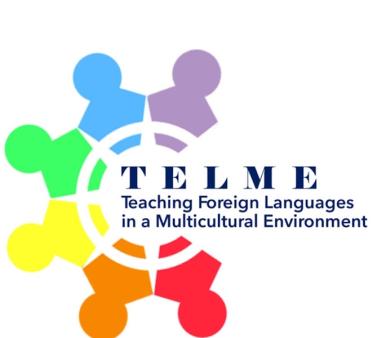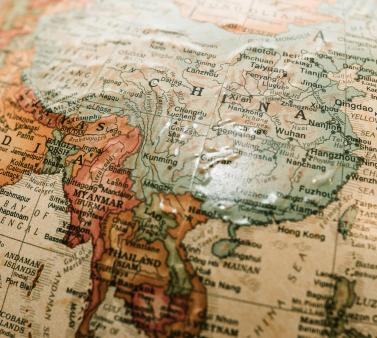There are three pathways to choose from in this Master’s degree:
-
Management and International Marketing (MMI)
-
International Trade: Europe-Asia
-
International Trade: Latin America and the Iberian Peninsula (ALPI)
Objectives
MMI pathway
At the end of their training, students will have mastered international management methods for:
-
Selecting, analysing and processing information on the environment in order to organize corporate commercial actions;
-
Developing, implementing and managing a development project in a new market: carrying out preliminary market research studies in French and foreign languages, drawing up provisional budgets, setting up and monitoring the marketing plan;
-
Managing an international product portfolio: drawing up a marketing mix for product / market pairs.
This pathway mainly prepares students for the following jobs: product manager, research manager, export sales manager, international development manager, research manager in a multinational company, international purchasing manager, international business manager, export sales manager in a marketing department, international communication manager.
ALPI pathway
ALPI is an international pathway. The last semester of the Master 2 is entirely located abroad in a partner university in the ALPI zone.
The objective of the course is to train future managers to implement and support international development projects.
ALPI prepares students to join a private or public organization whose activities are linked to an international environment. This may be a large company, start-up, embassy or NGO in France or abroad.
ALPI trains future intercultural managers to perform any of the functions necessary for the management of a company or public organization: import, export, purchasing, sales, logistics, law, human resources, digital communication, geopolitical analysis, international strategy, economics, financial management, etc.
In the framework of a partnership with PEPITE BRETAGNE, the ALPI Master’s also offers an adapted training pathway for those who want to develop a business creation project alongside their studies.
Finally, the ALPI pathway allows students to consider continuing their studies with a PhD in Applied Foreign Languages (LEA). The LEA PhD contributes, through research, to specialization of a profile in one of the disciplines of the ALPI pathway. The discipline studied in the PhD is approached with an international focus, relating to the ALPI zone, and a foreign language bibliography.
The LEA PhD, undertaken after the ALPI Master’s Degree, helps to provide solutions for organizations operating in particularly complex international environments. There is a growing requirement for doctoral expertise in the workforces of companies, public administrations and NGOs, and this situation will only increase in the years to come. The ALPI Master’s Degree supports PhD candidates in the creation of their research proposal.
Europe Asia pathway:
The aim of this pathway is to equip future senior managers with the international business skills and other specific skills needed to manage international trade and investment. Graduates will be specialists in the economic and commercial environment of the Asia zone and in trade with Europe. Graduates will be able to take up positions of responsibility, particularly abroad, in jobs related to international trade, negotiation and management of international organizations and in institutions, representations and NGOs active in this complex geographical area.
Skills
Master 1
Foreign languages:
-
Consolidating at least two foreign languages including English.
-
Proficiency in decision-making processes and discourse management.
-
Knowing how to mobilize linguistic terminology.
-
Analysing the operational managerial decisions of organizations.
-
Studying national and international agreements.
-
Developing and applying discursive techniques.
Management - Marketing - Economics – Law:
-
Knowing how to use statistical analysis methods.
-
Proficiency in theoretical and methodological marketing approaches.
-
Conducting market research for an external sponsor.
-
Assimilating the fundamental concepts of Community law.
-
Good command of the concepts of internationalization of an organization.
-
Knowledge of basic management concepts.
-
Understanding the institutional communication of organizations.
Master 2
-
Knowing how to analyse and implement a marketing strategy.
-
Proficiency in analytical accounting and financial tools.
-
Knowing how to deal with commercial and/or managerial issues.
Course Content
Master 1:
The majority of the classes (with the exception of the Language Teaching Unit (UEL) / Modern Languages 3 (LV3) are common to all three pathways. The specialization starts with a semester 8 Teaching Unit (UE) and is oriented towards marketing or international trade.
Students on the ALPI pathway must choose a third language from their geographical area of specialization (Portuguese or Spanish).
For students on the Europe-Asia pathway, the possible language combinations are:
-
Vietnam option: English + Introduction to Vietnamese + Languages Teaching Unit (UEL) Chinese continuation or UEL Japanese continuation or UEL Computer Languages. The Vietnam option in year 1 prepares students who are going to the Foreign Trade University of Hanoi in year 2 to follow the delocalized CREEA courses in Vietnam.
-
Europe-Asia option: English / Spanish, English / Italian, English / German or English / Portuguese (all languages must have been studied at Bachelor-degree level) + UEL Chinese continuation or UEL Japanese continuation.
MMI students choose between a Computer Languages or a Modern Languages 3 in continuation.
All students must complete a compulsory internship of at least 2 months.
Master 2
Students properly develop their specialization in year 2, with a core syllabus between MMI and the two International Trade (CI) pathways. The two CI pathways also have common modules and classes specific to the geographical area of specialization.
For the MMI pathway, year 2 comprises one semester of classes (S9) and one semester of a compulsory internship of 4 to 6 months (S10).
-
Vietnam option: training is one year (semesters 9 and 10) at the Foreign Trade University of Hanoi, within the M2 CREEA, Commerce and Economic Relations Europe-Asia, delocalized by Rennes 2. Classes are mainly taught in French, but some are in English.
-
Europe-Asia option: in semester 9, students stay at Rennes 2, where they follow a core syllabus of LEA Master’s Degree classes and specific modules for the Asia zone. In semester 10, it is intended that the Europe-Asia pathway students undertake an exchange abroad. Rennes 2 has bilateral agreements with higher education institutions in China, Japan, South Korea and Taiwan, to name but a few. The compulsory 3 to 6 month internship can also be undertaken abroad. Bursaries are available for international mobility.
The ALPI pathway comprises one semester (S10) of studies in a foreign university in the zone concerned followed by a compulsory 4 to 6 month internship.




